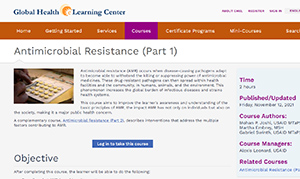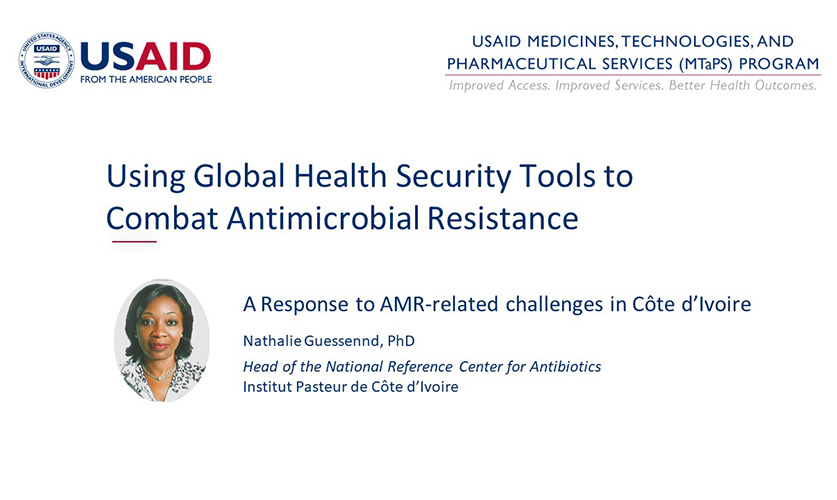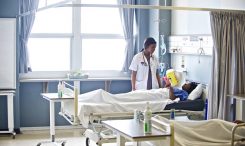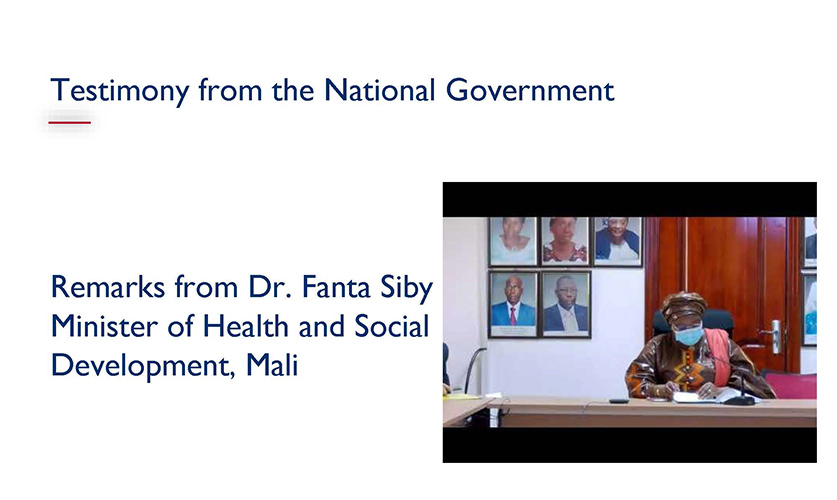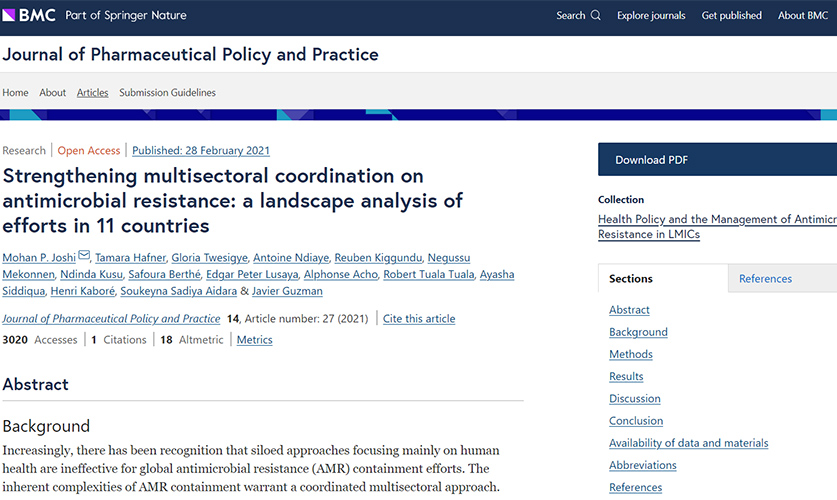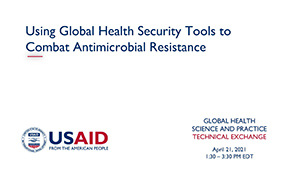The COVID-19 Challenge
State of pandemic. Overarching U.S. goal (end the pandemic; mitigate its wider harms to people and societies; and strengthen the global recovery and readiness for future pandemic threats). MTaPS as one of the key technical implementing partners of USAID.
MTaPS’ Technical Areas of Support

MTaPS supports GHSA and works to promote equitable access to

Aligned with these programmatic goals

MTaPS is providing technical support to two of the five objectives of USAID’s response.
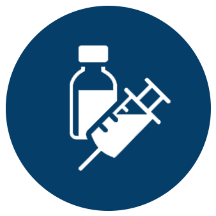
COVID Vaccine Deployment
Objective Acceierate equitable
access to and delivery of safe
and effective COVID-19
vaccinations
- Policy, coordination, and implementation planning
- Guides and tools for vaccine introduction
- Vaccine-related human resources capacity building
- Vaccine safety monitoring and reporting
- Vaccine procurement, supply chain, and logistics
- Risk communications and advocacy
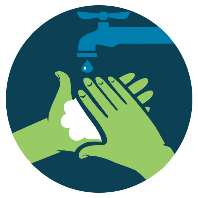
Infection Prevention and Control Objective: Reduce morbidity and mortality from COVID-19, mitigate transmission, and strengthen health systems, including future
pandemic response
- Infection prevention and control (IPC) capacity building from national to health facility level
- IPC coordination and national rapid response
- Monitoring of COVID IPC standards compliance at facilities
- Integrating continued IPC improvements in health systems
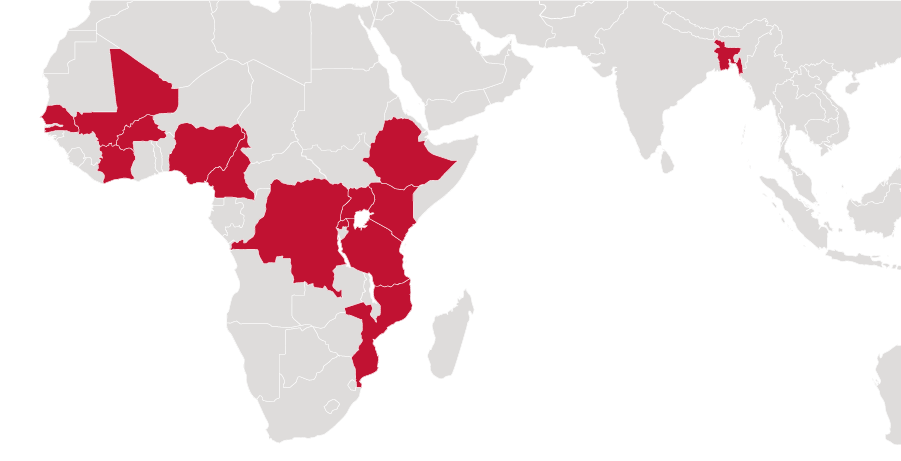
Our GHSA Countries
Bangladesh, Burkina Faso, Cameroon, Côte d’Ivoire, Democratic Republic of Congo, Ethiopia, Kenya, Mali, Mozambique, Nigeria, Rwanda, Senegal, Tanzania, Uganda
Covid Vaccine Deployment
Sustainably stepping up infection prevention and control (IPC) at health facilities
Poor IPC practices and governance at health facilities in LMICs are major problems that lead to health care-associated infections, which not only increase the need for treatment with antibiotics but also compromise the quality of care for patients.

In Cameroon, MTaPS supported national counterparts to establish, strengthen, and monitor IPC committees in 12 health facilities across the country. IPC committees are charged with implementing and monitoring IPC programs at health facilities for continuous improvement. Following this successful intervention, the Minister of Health signed a decree mandating IPC committees in each health facility in Cameroon.
In Tanzania, a newly launched eLearning course on IPC is helping strengthen the capacity of both preservice and in-service health care workers. MTaPS worked with the Center for Distance Education to reach local health-related training institutions with an IPC eLearning course, which was incorporated into the national eLearning platform for health in June 2021.
“What I got after doing the IPC e-Learning course will help me when teaching my students on IPC here at the college” – Asnath Mpelo, Nursing Tutor, Kilimanjaro Christian Medical University College”
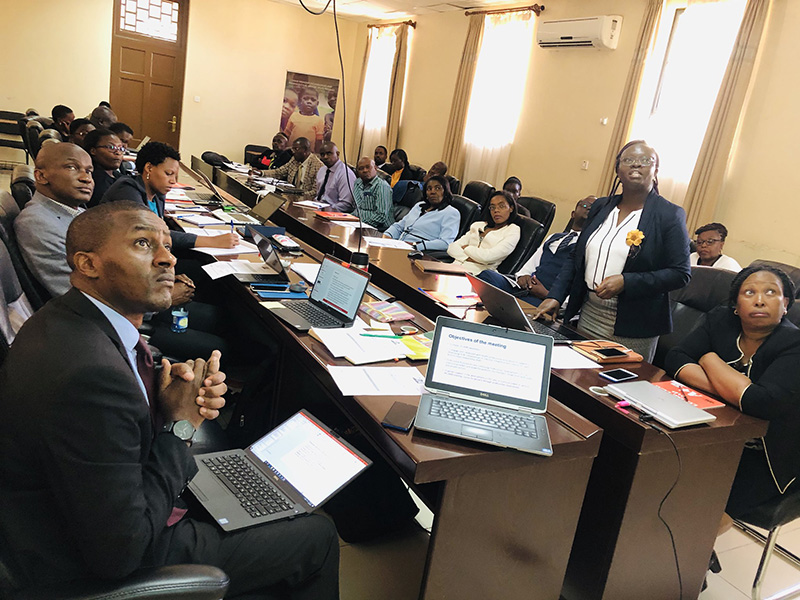
In Kenya, the approach of developing and implementing a continuous professional development course on IPC in collaboration with seven health workers’ professional associations is helping thousands of workers update their IPC skills and will continue doing so throughout their jobs. Read the story.
Fighting AMR from the ground up: Policies, regulations, guidance, and governance
The lack of an enabling regulatory framework, guidelines, and strong governance is at the root of poor practices at health facilities and weak coordination across stakeholders, which fuels the spread of AMR.
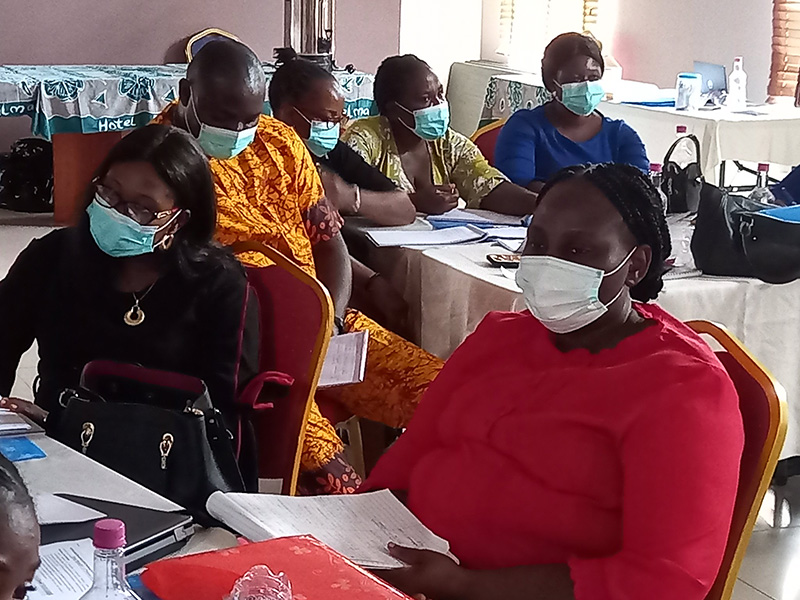
In Nigeria, the AMR Technical Working Group and its subcommittees have been revitalized with clear roles and work plans to implement AMR containment, with MTaPS’ collaboration with the Nigeria Center for Disease Control (CDC) and the National AMR Secretariat. To strengthen IPC governance in the country, a national IPC standard operating procedure was validated for use by all health facilities, and an IPC policy is being developed with participation from stakeholders, including the Ministry of Health, WHO, and CDCs from Nigeria, Africa, and the US.
In Mali, the Ministry of Health, with assistance from MTaPS, established its first-ever Drug and Therapeutics Committees (DTCs) at five sentinel health facilities—a proven way to promote sound management of medicines among health care professionals. Support, such as terms of reference for the committees and training, is strengthening the new DTCs; it also catalyzed the inclusion of a directive on establishing DTCs in the Mali National Medicine Policy, which was revised in September 2021. Read the story

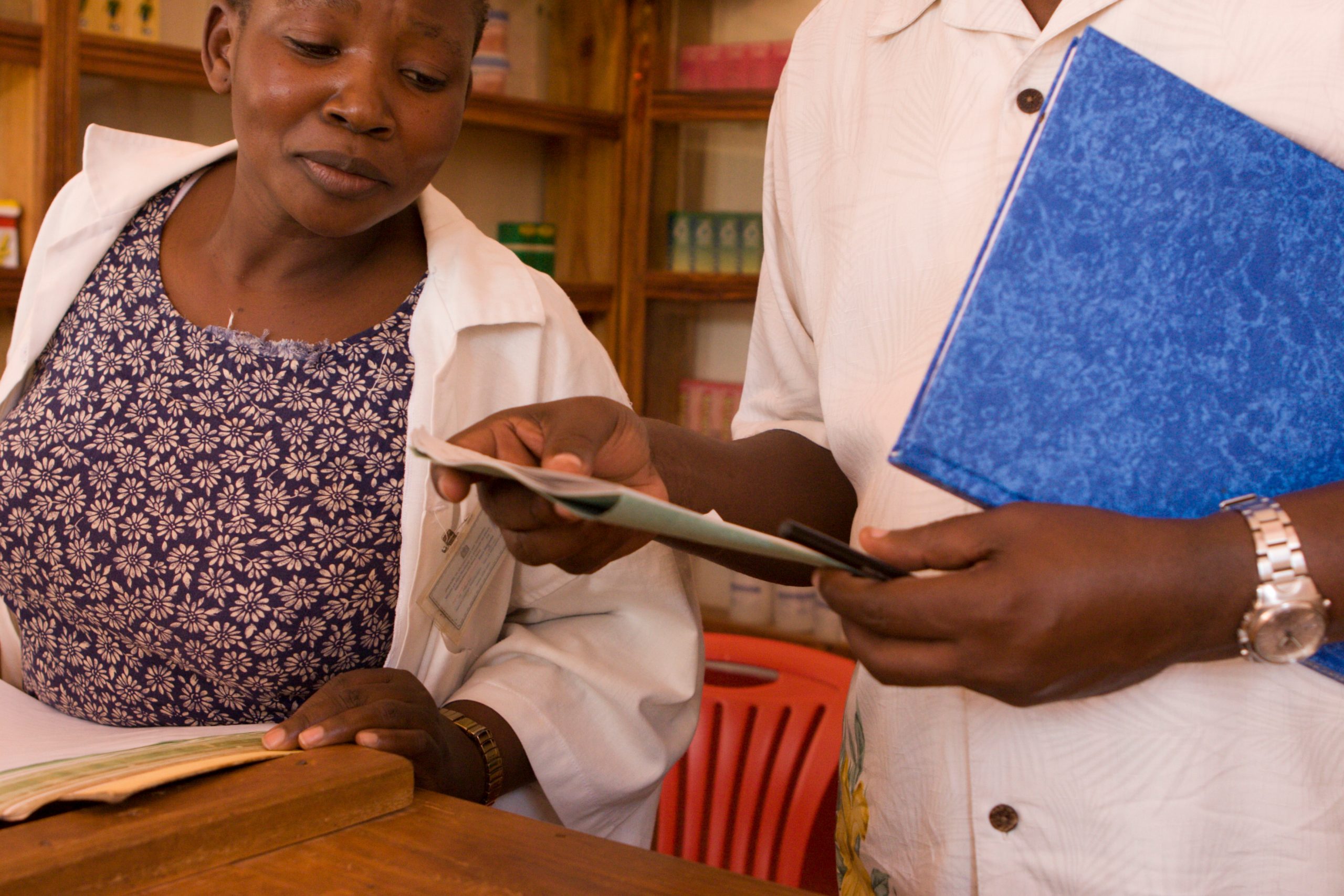
In Tanzania and Kenya, MTaPS supported the Ministries of Health to implement WHO’s AWaRe categorization of antibiotics (access, watch, and reserve)—a policy tool to aid health care providers in rational prescribing and dispensing of antibiotics that will maximize treatment benefits and reduce unnecessary or prolonged cost of treatment. Learn more
Making antimicrobial stewardship (AMS) everyone’s business
The misuse and overuse of antimicrobials in health care is a major contributor to AMR. Countries need a clear plan for AMS to improve the use of antimicrobials across health facilities, pharmacies, and communities.
In Côte d’Ivoire, MTaPS worked with the national AMR Technical Working Group to provide training to private pharmacists and representatives from private companies and civil society organizations in the animal health and agricultural sectors to implement stewardship activities.
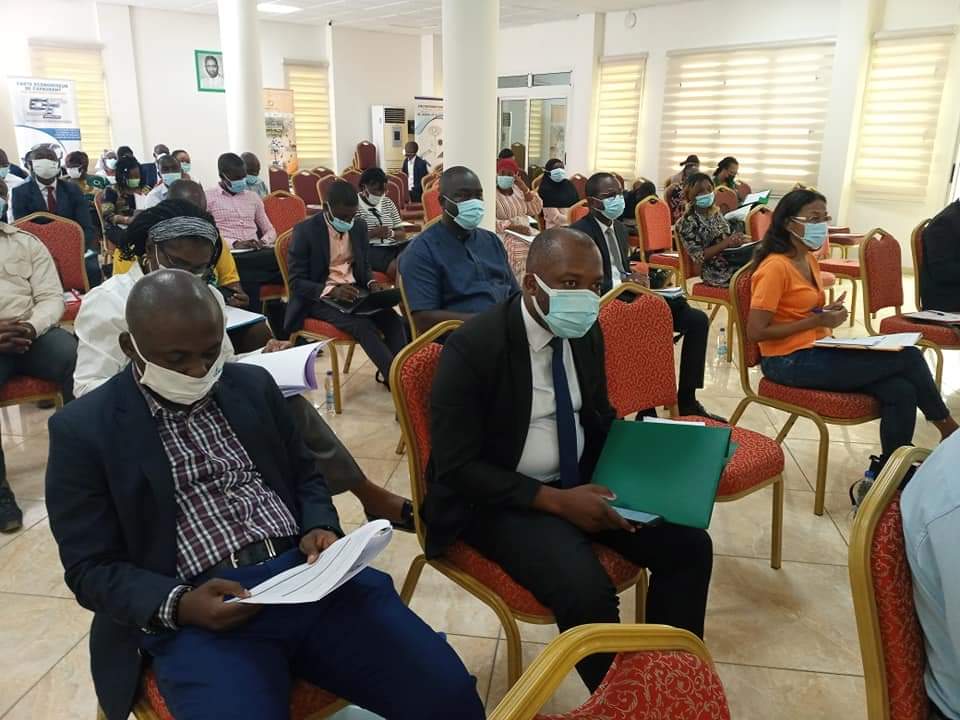
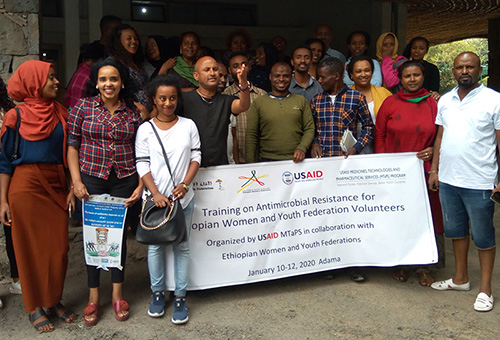
To sensitize wider segments of the population in Ethiopia, MTaPS engaged the Ethiopian Youth and Women Federation to integrate AMR messages and actions into its health-related activities in communities around maternal and child health, HIV prevention and testing, and hygiene and sanitation. Read more
Contact
Andre Zagorski, MTaPS COVID-19 Response Lead, [email protected]
